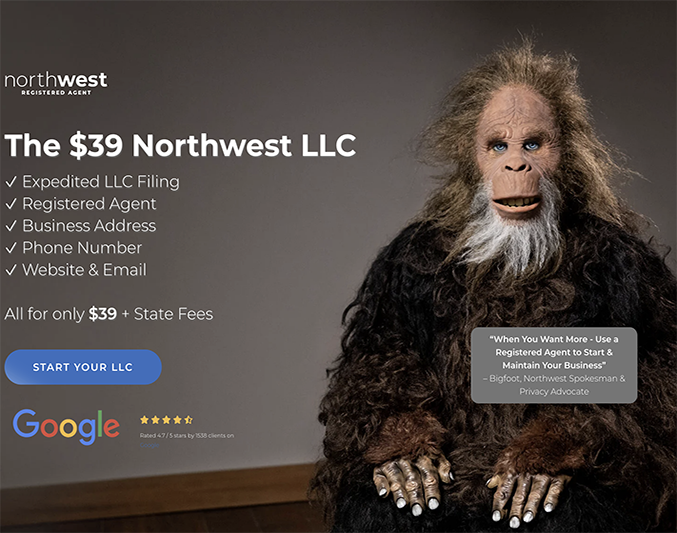
Starting a business is an exciting, often overwhelming venture, filled with countless decisions.
I know, as I’ve been there several times.
A Storied Startup Career
In 1988 I joined startup Execuserv in Ridgecrest, CA, started by a college friend with another partner. That partner moved on shortly after I arrived and we renamed the company Pizzino & Reber Communications.
Around 1991, after brief employment with a former client, I again started another PR/marketing consultancy — this time with a former co-worker. He left after less than a year (I don’t purposely scare off partners, honest), and I remained self-employed until late 2001.
After being employed by two companies in Southern California and one in Arizona, I re-entered the world of entrepreneurship in 2008. In a sense, I simply re-started my previous startup, which is still my current business.
I can state unequivocally that PR (public relations) has been part of every startup I’ve owned since Day One*. (Well yes, in my case that’s impossible to avoid.)
Your Day One Decision
One decision many startups overlook is making PR an integral part of the business from Day One.
PR isn’t just for established brands with big budgets — it’s a critical tool for startups to build credibility, trust and visibility from the get-go. You may think you can’t afford it as a startup. Well, you can’t afford to not have it.
But first, a disclaimer. I’m clearly biased (yet adamant about being right on this) because I’ve been a PR pro since 1987 and have owned my own startup for the majority of my career. (But we all should be passionate about something, right?)
From crafting a consistent brand voice to protecting your reputation, having a corporate communications or PR professional on your team from Day One is essential for any startup.
Here are five key reasons why PR is a must for your fledgling startup (and even for those businesses that have already taken flight):
1. Communication Consistency
Your company’s reputation starts with its messaging. And inconsistency can lead to confusion or misrepresentation of your brand. A skilled PR professional will ensure that your company speaks with “one voice,” using consistent language and tone across all platforms. They’ll set up a style guide (likely AP Style, which is widely used in the industry) to maintain uniformity across all your communications.
This might sound trivial, but details like whether to use an Oxford comma or how to write a product name, are important. Nitty gritty details contribute, no matter how small, to your overall professionalism and public perception because all the little inconsistencies add up over time.
For example, take Apple — a company renowned for its precise, consistent messaging. Whether it’s in a press release, product description, or keynote speech, Apple’s tone is always polished and clear, leaving little room for ambiguity.
Consistency day in and day out is part of their brand’s strength, and it’s something every startup should aim for.
Put another way: If you can’t take care of the little, easy things, how can you be expected to take care of the bigger things?
Having a clear, coherent communication style makes your startup look more professional and trustworthy, even before you’ve built a solid customer base.
2. Building Corporate Culture
Your employees are your company’s most important stakeholders. In the hustle of launching a new product or service, it’s easy to overlook internal communications. But a great corporate culture, one built on transparency and shared values, starts with clear messaging.
PR professionals often work closely with HR to help management communicate effectively with employees. This includes clearly conveying the company’s mission, vision, and values. When your team feels connected to your company’s core beliefs, they’re more likely to become passionate ambassadors of your brand.
Consider Chick-fil-A, a company known for its strong corporate culture and customer service. Their emphasis on values, integrity, and clear communication has helped build a loyal employee base and brand following. For a startup, creating that kind of culture early on can be a game-changer.
3. Stakeholder Relations
Too many people think of PR professionals as simply the folks who secure press coverage. While media relations are a big part of the job, it’s not the whole picture. A good PR pro helps you build and nurture mutually beneficial relationships with all your stakeholders.
This includes not just the press, but also your employees, customers, investors, shareholders (if applicable), suppliers, contractors, local communities, trade organizations, and more. Maintaining strong relationships with these groups is key to building a long-lasting, successful business.
Take Tesla as an example. The company has built strong relationships not just with investors but also with local communities where they build factories, helping them secure favorable outcomes in difficult regulatory environments.
4. Corporate Reputation & Crisis Management
PR is your company’s conscience. In today’s fast-paced digital world, a reputation can be built — and destroyed — in minutes. A good PR pro keeps an eye on potential risks, ensuring your company’s actions and communications align with its values. They act as a moral compass, advising when certain actions might result in negative backlash.
You may not be as large as United Airlines or some of the other companies mentioned here, but by adopting PR from Day One, you weave it into the fabric of your company as you scale. United’s failure to execute a well-thought-out crisis communications plan during its 2017 passenger scandal shows just how critical it is to have PR professionals on your team. A well-executed crisis plan can protect your reputation and help your business recover more quickly.
If a crisis hits — whether it’s an executive scandal, a product recall, or a customer service failure — your PR pro is your first line of defense. With a crisis communications plan already in place, they’ll be ready to manage the narrative (hopefully authentically) and protect your reputation.
5. Media Relations & Free Press Coverage
Your PR pro can build and maintain relationships with key journalists, bloggers and influencers in your industry. Media coverage from trusted sources is often more credible and effective than paid advertising. A single press article or TV segment can boost your startup’s visibility and credibility in ways paid media often can’t.
For example, Airbnb’s early growth can be partially attributed to well-placed stories in major news outlets. These articles built credibility for a brand that was otherwise unconventional at the time. When media outlets are talking about you, customers and investors are more likely to trust your business, which can lead to faster growth.
And remember, unlike advertising, PR-generated press coverage is free (in the sense that it’s earned media) and has the potential to reach a wide audience. When you’re starting out, every dollar counts, and earned media can help you get your story out without breaking the bank.
Real-World Examples of PR in Action
- Slack – When Slack launched, it quickly became one of the fastest-growing business apps in history. A huge part of its success can be attributed to PR efforts that focused on building relationships with media and influencers in the tech space, leading to significant press coverage.
- Dropbox – Dropbox’s referral program went viral, and while it was a marketing strategy, PR played a role in getting influencers and media outlets to talk about the service. This earned media coverage was a huge boost for a company that was competing in a crowded space.
- Zappos – Known for its customer-first philosophy and outstanding corporate culture, Zappos has consistently used PR to communicate its values and build strong relationships with its customer base. Their message is always clear: customers and employees come first, and that resonates with their stakeholders.
The 3 Big Takeaways:
- PR is an essential tool for startups to ensure consistency in messaging, build strong relationships, and safeguard their reputation.
- By establishing a strong corporate culture from day one, startups can build a loyal, motivated workforce.
- Earned media through PR can often be more credible — and cost-effective — than paid advertising, making it a powerful asset for startups.
Investing in PR from the beginning isn’t just smart — it’s essential for long-term success. If you want to learn how PR can benefit your startup, let’s chat!
* NOTE: I’ve decided to make Day One a formal term in this post because it’s a momentous day in the life of a startup.

Jeffery E. Pizzino, APR is a spin-free public relations pro who is passionate about telling the why of your story with clarity, impact and authenticity. He began his PR career in 1987 at Ketchum Public Relations in New York City but has spent the majority of his career as a solopreneur. He’s AuthenticityPR’s Chief Authentic Officer and also functions as the fractional CCO for technology startup Converus.
Jeff has an MBA in Management from Western International University and a Bachelor of Arts degree in Communications — with an emphasis in PR — from Brigham Young University. He’s a native of Milwaukee, Wisconsin, but also holds an Italian citizenship. Jeff and his storyteller wife Leticia have four children and four grandchildren. In his extremely limited nonwork hours, he studies italiano, practices guitar, gardens, disc golfs, reads, listens to New Wave music, serves in his church, watches BYU football, and plays Dominion and Seven Wonders. Email Jeff.

